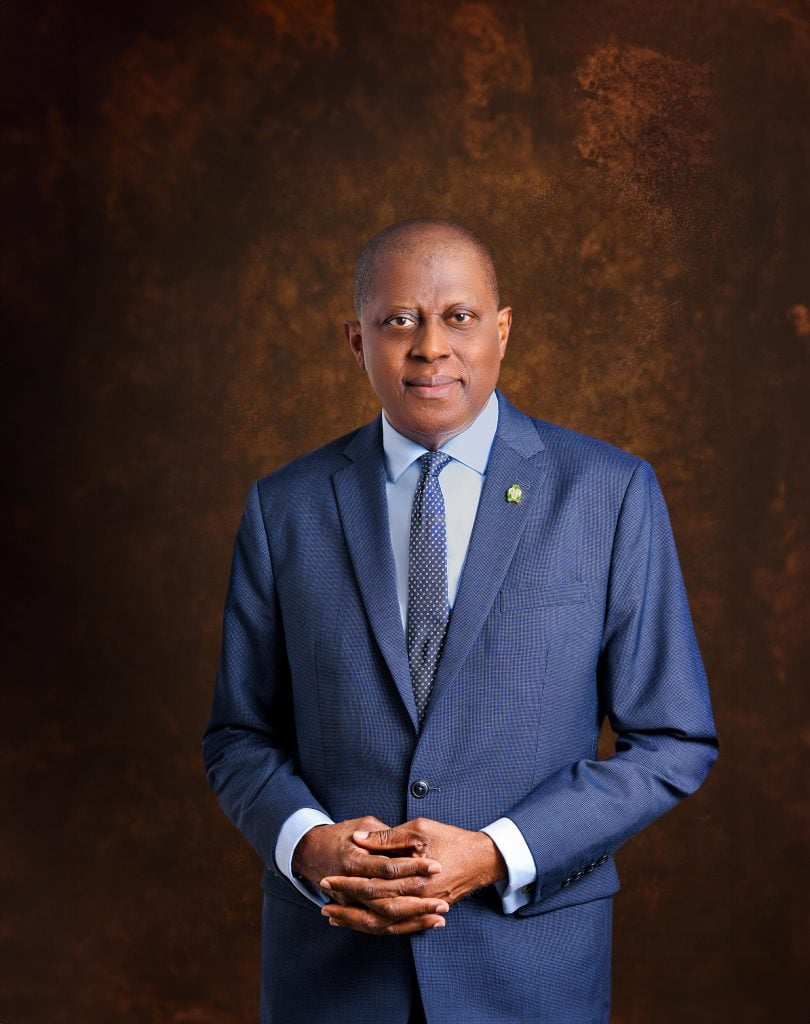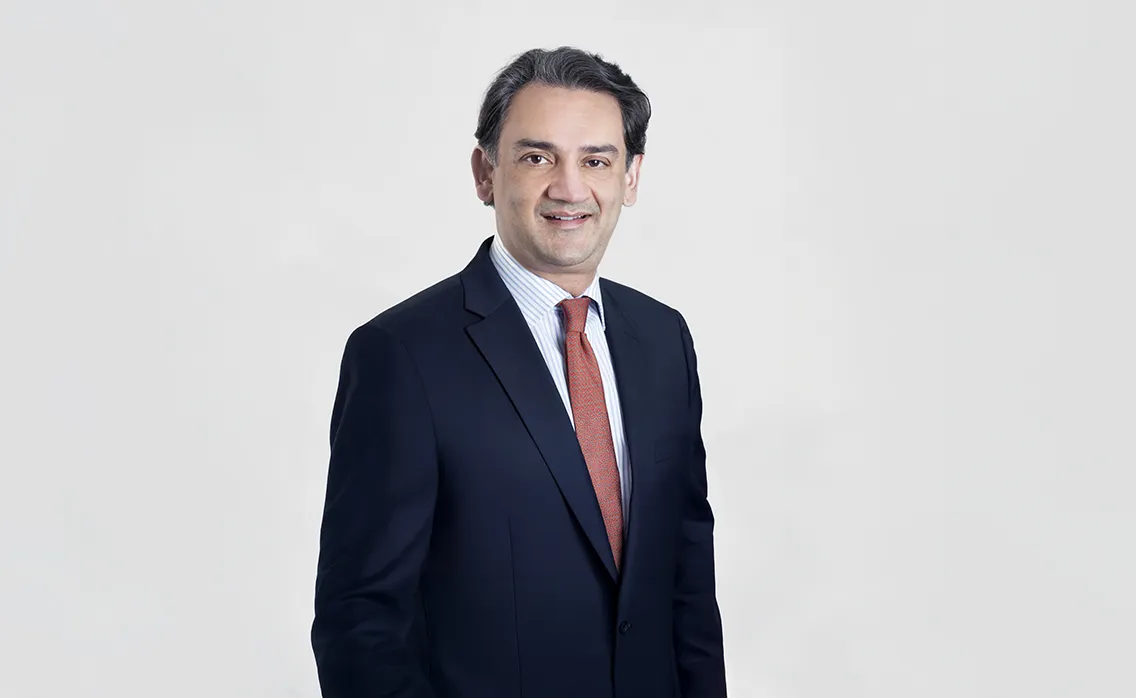
Olayemi Michael Cardoso was under no illusions about the position when he took over as governor of the Central Bank of Nigeria (CBN) in September 2023. A few weeks into the job, he famously described the position as the second hardest job in the world.
Despite being the continent’s largest economy, many observers, especially inside Nigeria, believe that the country had long underperformed its massive potential, as the oil-rich nation battles frequent fuel and power shortages, high unemployment and inadequate infrastructure. The CBN – responsible for foreign exchange and monetary policy – has often been the focus of ire, pivotal as it is in bringing wealth and prosperity to the nation.
With a sweeping mandate from the newly-elected President Bola Tinubu, Cardoso directly addressed some of those challenges, unifying Nigeria’s parallel markets for foreign exchange and hiking interest rates to rein in inflation. He has also re-focused the bank on its core mandate and towards economic orthodoxy, away from unconventional interventions that had rattled markets and deterred investments.
A product of Aston University and the Harvard Kennedy School of Government, Cardoso has served in various high public and private positions. Known in banking and business circles as a “decent, solid and hardworking guy,” he served as commissioner for the Lagos state ministry of economic planning and budget from 1999 to 2005, when he resigned. He served as the chairman of Citibank Nigeria’s board of governors from 2010 to 2022. He also served on the board of MRS Oil and was chair of Enhancing Financial Innovation and Access, which focuses on boosting financial inclusion in Nigeria.
His new role, however, could define not only his own legacy, but the very nature of Nigeria’s economic governance, as he seeks to dismantle the structural challenges that have long hobbled it.
The results of his early interventions have hitherto been mixed – although many claim it is too early to judge. The country’s citizens have, unsurprisingly, been alarmed by the shock therapy, which has prompted higher prices due to the loss of petrol subsidies and a currency that, in the near term at least, has substantially lost value.
Market watchers have, however, been more welcoming of his approach. They have been buoyed further by the naira’s rebound, with the currency gaining 40% against the dollar from mid-March to mid-April, making it the best-performing currency in the world in that month.
With analysts waiting to see how the reforms play out, African Business editor-at-large Omar Ben Yedder sat down with Governor Cardoso on a late evening during the World Bank Spring Meetings to discuss the rationale behind his approach, what he expects from his interventions and whether his job has gotten any easier.
African Business: Your approach to addressing the issues has been what economists call “by the book”. But investment flows have not returned. Can this approach work or do we need to be a bit more patient to see the results of these decisions?
Olayemi Cardoso: Well, it is definitely a long-term call. But beyond that, you also have to look at where we are coming from, a situation where monetary policy was rather unorthodox and a lot of attention was spent on unorthodox interventions. It appears that there were a lot of challenges managing monetary policy in that manner, not least of all the fact that the Central Bank doesn’t have the capacity to handle those sorts of interventions, the result of which, if you’re not careful, is substantial, inefficient and ineffective interventions that cost a lot of time and resources; and which can have an inflationary impact in themselves.
So, to our mind, the more beneficial path is to stick to the orthodox means of monetary policy. Which is what you know how to do and which enables you to measure your success in a more effective and efficient manner.
So far you have raised interest rates and, to some extent, removed the volatility and uncertainty around the exchange rate brought about by the parallel markets. The government has also removed fuel subsidies. Are there further interventions or innovations that you intend to pursue to restore market confidence?
The question is what drives these decisions and, essentially, they are driven by data. Of course you have to have an idea of the different stakeholders in the economy and be constantly feeling the pulse of the economy. But it is important to have access to evidence-based data. That is what will push you in a particular direction.
A lot will depend on what the data reveals. It is important to be able to intervene quickly and promptly where you have to. For example, we know inflation is up now. We know that some of the interventions we have made have significantly brought down exchange rates. We also know that the transmission between exchange rates and inflation is fairly strong. So we expect that, in the short term, inflation will begin to moderate.
Then, of course, we will look at other factors as well. For example, to the extent that food inflation can be “sticky”, one would obviously have to work more closely with the fiscal side to address some of the bottlenecks so that food inflation can begin to moderate.
To your question about innovation: we do not, for example, want to get involved in more direct interventions. But the Bank had some fertilisers which came from a previous intervention prior to our taking office, which we decided to pass on to the ministry of agriculture because we believe they’ll find this useful in supporting the farmers to bring down the cost of inputs and essentially have a pass through to food prices. Now that obviously will not happen overnight. But we are thinking ahead to ensure that whatever happens, we can support the fiscal side in managing food inflation better.
The government has set a target for Nigeria to be a $1 trillion economy by 2030. Has the Central Bank got a mandate to support this objective? And how will you be supporting it, if you do?
We do believe that some of the measures we are taking will result in stability in the financial markets, which is very critical to those who are going to invest. We also believe that, in the fullness of time, interest rates will begin to moderate, so investors can start to invest again. Of course, in terms of costs, we have to ensure that those who are coming in to invest from outside can see clearly that there’s stability in the market; that they can bring in their foreign exchange and they can take it out again. And that, really and truly, they don’t have to know anybody in the Central Bank or in the commercial banks to do their business.
So those are all things that it is very, very important for a central bank to do to rise up to the occasion, to give confidence to those who are outside of the system and give them the confidence to want to invest. And, also, to guide the banking system in such a way that they will also support this trillion-dollar economy. Indeed, that was part of the thinking that went into the decision to recapitalise [the banks], which is that we do need a stronger and more virile banking system to ensure that they can support the goal of the trillion-dollar economy.
Given the challenges of the past few years – Covid, the volatility in the economy – would you say the banking system in Nigeria is still strong?
I would say it is. The non-performing loan ratio is well within the set targets and basically, in spite of the significant ups and downs that we’ve seen in recent years with respect to the financial markets, the exchange rates and all that, I think the banks quite frankly have come out pretty strong.
Do you stress-test the banks? I understand there might be some consolidation in the industry?
We’ll have to wait and see. Bear in mind that our new model is one which allows the banks flexibility. If, for example, you decide, for whatever reason, that you do not want to raise the new capital that is required, you’re free to downgrade. You don’t have to remain as a certain category of bank. You don’t have to be an international bank; you can be a national bank.
The idea really – and we’ve given them a lot of time, two years – isn’t so much to push the banks into doing things they don’t want to do, but to strengthen them and to ensure that going forward, we have a strong banking system that is fit for the purpose for growing the economy.
When you speak to international investors and business people now, what sort of feedback do you get? Are people ready to enter the market now because there is some stability? Or are they rather taking a wait-and-see approach?
My experience in these past few months has shown me that international investors, by and large, especially those who have followed Nigeria over a period of time, have not been daunted. In fact, they see it as a big opportunity. They’ve seen the various steps and measures that have been taken to create stability in the market and they are comfortable with them. Some have come in and asked the right questions. They continue to monitor progress. So when the variable started to change, we didn’t need to convince them of anything.
In fact, I have spoken to a number of big companies – and I won’t name them now – who, even when things seemed daunting, were following the trends and asking the questions – and the investments will continue to come in quietly.
From the international side, while some have left, the bigger issue, really, is about timing. Do I come in now or a little bit later? And I think they also recognise that the longer they wait, the more opportunities they could lose.
Having bitten the bullet with these reforms and decisions that you have made, would you consider going to the International Monetary Fund, as Egypt, a similarly-sized economy, has done?
The policies that we have been implementing so far are homegrown policies: policies that we believe are what is necessary to revamp the economy and attract foreign investments. And they are doing just that. For that reason, I don’t see the need for us to go to the IMF.
Now, let me say something here. There are certain statistics that we should be very mindful of. For example, Nigeria has traditionally had a very low tax-to-GDP ratio. These are things that, in my experience, largely result from structural impediments.
Now, as those structural impediments are taken away, the ratios begin to improve. And that is exactly what is happening. So I see no reason why they need to go and take money from anywhere. We’re doing all the right things. The economy is improving and the money is coming in.
What is the state of your reserves now? Financial engineering by the previous administration inflated the reserves. Has there been any improvement?
There is something very important that you need to understand with respect to the reserves. When we came in, we had $7bn of obligations arising from forward transactions.
Basically, what had happened is that there were transactions which the Central Bank had agreed to pay and for some reason couldn’t pay. When we came in and found that, we decided that we needed to pay. Some might have been tempted to say “this has nothing to do with us” but we felt we had to, because it’s a matter of confidence. You can’t come into government and refuse to honour a commitment that stands in the name of the government.
So we decided, as a matter of priority, to start paying as money started to come in. We have now settled all those obligations. Now, obviously, doing that has an impact on your financial situation: but the point of the matter is that, in spite of that, our reserve position is improving. Why? Because confidence is slowly but surely returning to the market, especially after we settled those obligations.
When you say confidence, what does that mean? Portfolio inflows? International investment?
Yes, even foreign remittances from the diaspora. Don’t forget that the World Bank estimates that over $20bn comes in every year from that.
And that has also started to improve, because one of the key things to understand about the merging of rates is that, unlike previously where people had to look for creative ways to do their business, that incentive doesn’t exist any longer. So people who, in the past, would have to find different ways can now go into any bank and change their money and that automatically comes into our position.
Going back to the previous administration, there were some things they were quite successful in, driving lending to the agricultural sector and to small and medium enterprises (SMEs), for example. Are there any of their policies that you’ll be continuing with to help the real economy?
Yes. Ultimately, it is very important that the real sector is able to operate in a manner that, frankly, makes sense for them, because don’t forget that investors go to where the environment is enabling.
They won’t make investments if it doesn’t make sense for them. So, for us, the critical thing is to ensure that we’re able to give free entry and free exit to the markets and that those who want to invest are able to invest and make money and not face a barrier for investment.
As I said, it is important that the real sector is able to have access to the banking system without having to know anybody. These, to me, are the important things with respect to ease of doing business that will make them confidently come in and invest.
Finally: going back to another statement that you made that you had the second hardest job in the world; is that still your assessment or have things gotten easier?
Well, that’s not exclusively my view; it’s what a lot of people tell me, which is why I made that statement. There’s no question about the fact that it’s a very difficult job.
However, I think that the exchange rate beginning to moderate is making the job less stressful, largely because people are beginning to see some form of a track record, and as a result of that they are now much more willing to listen. Because there was a lot of panic at some point.
People weren’t really sure as to where things were headed; but now they can see that all the different reforms are coming together and bringing out a credible outcome.
So the confidence level is beginning to rise and they are now a lot more willing to understand the situation we are in and to realise that there are quick wins in certain aspects, but there are no quick wins in others.
One of the things that surprised me the most was the extent to which people expected the Central Bank to solve all the problems in the country. And I think that is a huge misconception that, hopefully, over a period of time, will be corrected; because there’s a limit to what the Central Bank can do.
It seems to me that we have paid an undue amount of attention to the foreign exchange rate and, by implication, the Central Bank. And that, you know, is just one piece of the jigsaw.
All the other pieces of the jigsaw also have to come into place. And as I said, there’s no quick fix. It will take time; but people need to know that the Central Bank moderates the rates but that, in itself, doesn’t solve all the problems. And that means that the Central Bank, the fiscal side, the Ministry of Finance, the Ministry of Trade and others must work closely together.






Recent Comments